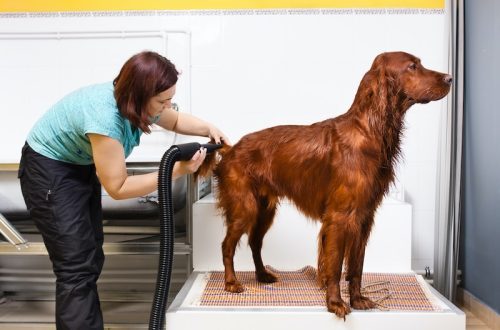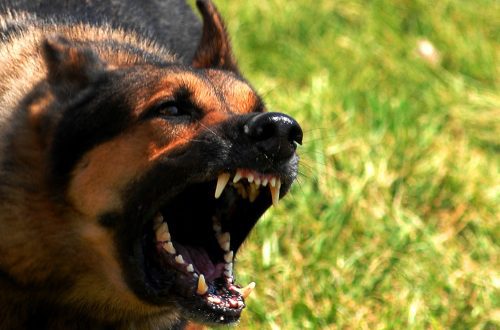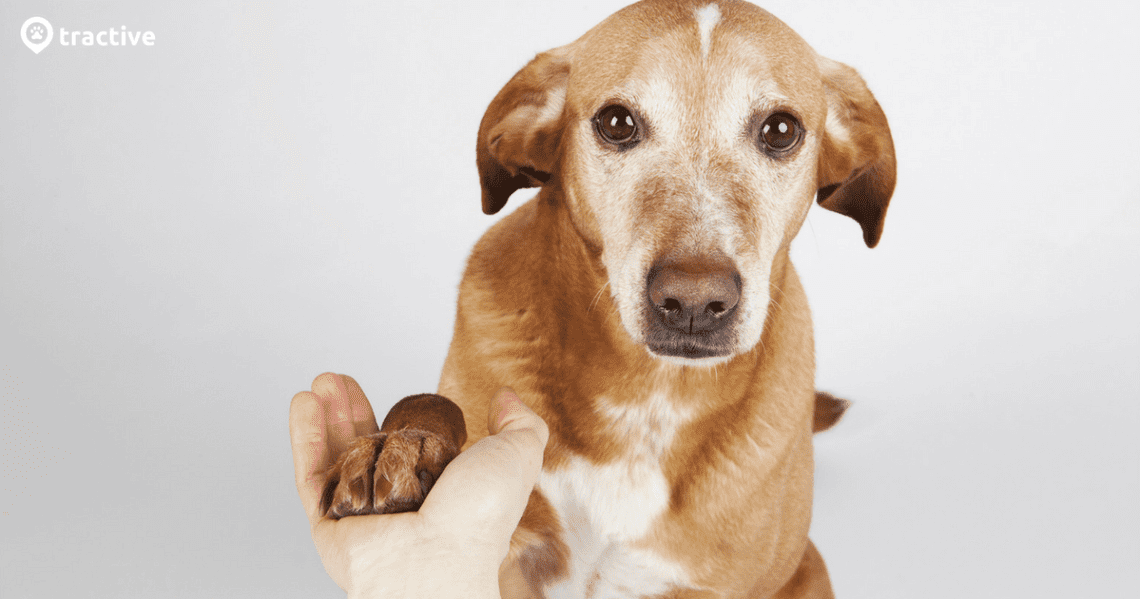
ການສອນຫມາທີ່ມີອາຍຸໃຫມ່ Tricks: ຄູ່ມືການຝຶກອົບຮົມຫມາເກົ່າ
“You can’t teach an old dog new tricks.” A hackneyed phrase, but how true is it? Read exclusive material and learn the secrets of training an older dog.
ເນື້ອໃນ
“You can’t teach an old dog new tricks”
The original version of this proverb sounded like this: “You can’t teach an old dog anything.” No one knows the exact origin of this phrase, but, according to Know Your Phrase, as early as 1721 it is found in Nathan Bailey’s Miscellaneous Proverbs. Although this proverb uses the dog as a metaphor for the stubbornness of human nature, an even older version can be found in a book on animal husbandry from the 1500s, which says that “it is difficult to make an old dog hunch over.” That is to say, training an adult dog to press its nose to the ground for scent tracking is difficult. The dog lover site Cuteness believes that these sayings originated in the days when dogs were trained to do certain jobs, like herding sheep or hunting, and as their senses deteriorated and age, their ability to use those skills naturally declined.
Puppies Versus Older Dogs: Are Their Training Methods Different?
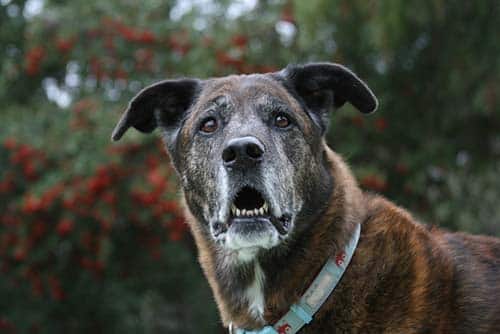 While declining health may prevent older dogs from performing certain tasks, they are still capable of learning new skills — albeit at a slower rate than puppies and young dogs, according to Age magazine. In a study conducted at the University of Vienna’s Smart Dog Laboratory, testing dogs’ ability to learn to distinguish between objects showed that animals around 10 years of age needed twice as many repetitions and corrections as puppies between 6 months and 1 year old. However, older dogs have outperformed younger puppies in logic and problem solving, which means that older dogs stubbornly refuse to lose the skills they have already been taught. This study also found no difference in the ability of dogs of different ages to continue training.
While declining health may prevent older dogs from performing certain tasks, they are still capable of learning new skills — albeit at a slower rate than puppies and young dogs, according to Age magazine. In a study conducted at the University of Vienna’s Smart Dog Laboratory, testing dogs’ ability to learn to distinguish between objects showed that animals around 10 years of age needed twice as many repetitions and corrections as puppies between 6 months and 1 year old. However, older dogs have outperformed younger puppies in logic and problem solving, which means that older dogs stubbornly refuse to lose the skills they have already been taught. This study also found no difference in the ability of dogs of different ages to continue training.
Dog breeds that are easy to train at an older age
Although the mentioned study found no relationship between the learning ability of aging dogs and breed, some breeds of dogs will learn tricks more easily at any age. According to iHeartDogs, among the breeds that are best at learning new skills are poodles, golden retrievers and Labrador Retrievers, as well as herding breeds including German Shepherds, Collies and Shetland Shepherds. In addition, Cardigan Welsh Corgis and Pembroke Welsh Corgis are excellent trainees.
Why try to train an older dog?
The need for training an older dog can be for a variety of reasons: maybe you adopted an older dog who needs to adjust to life in the home, or maybe an older dog has a difficult past and needs to be resocialized or desensitized to fear triggers. Here are a few more reasons why you might need to train an older dog:
- Teaching a dog that lived in the yard to the house.
- Preparing for a new experience, such as travel.
- Introducing new activities to ensure physical activity and maintain a healthy weight.
- Consolidation of the skills once acquired by the dog in the process of obedience training.
- Prevention of boredom and cognitive decline.
Senior Dog Training Tips
As dogs age, many of them develop conditions that limit their ability to learn, including joint pain, loss of vision or hearing, and cognitive decline, says Rover. This may mean that you should not try to teach your older dog more active games or activities. The good news is that older dogs can still learn new things. Training a puppy is fairly quick and easy, while raising an older dog takes more time and patience.
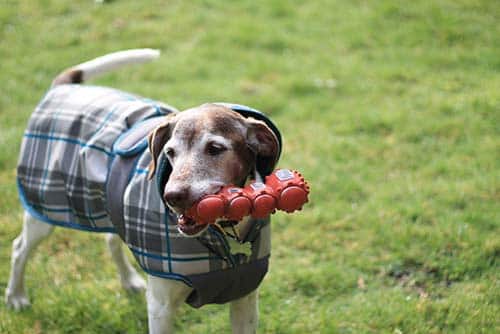
A few tips to make it easier for an old dog to learn new tricks:
- Assess your pet’s condition: Does he or she have any health problems or cognitive dysfunctions that might make it difficult to complete the task being taught? If the goal of training is to solve behavioral problems, could such problems be the result of a health problem? For example, an older dog that has begun to stain the carpet may need to be treated for a bladder problem, rather than a refresher course in cleanliness. Talk to your veterinarian to make sure your dog is healthy enough to train.
- Do something active with your pet first: For a dog that is easily distracted and loses focus, a walk or stick tossing game before training will help release pent-up energy, allowing him to relax and become more focused.
- Reward the dog: Give her her favorite treat every time she does what she is asked to do. This contributes to the formation of positive associations between the team and the desired result. If your dog is no longer enjoying treats or you are watching his weight, reward him with more praise and petting, or try clicker training.
- Ignore unwanted behavior: sounds counterintuitive, but if you focus your dog’s attention on situations where he is distracted, lying down, running away, or unwilling to obey, it will only reinforce this behavior. It is best to ignore such actions, change the environment and try again.
- ພັກຜ່ອນ: Of course, you will get annoyed if your dog doesn’t seem to understand what you want from him, but remember that your older friend is likely experiencing the same thing. If you feel a rush of irritation, stop the training session and try again the next day.
- ມີຄວາມອົດທົນ: remember that older dogs take twice as long and twice as many sets as younger dogs to learn something new.
- Practice and more practice: in order to master a new skill, an older dog needs constant reinforcement. Missing a day or two, you only complicate the task of an old friend. Continue to exercise your dog regularly, rewarding him with treats and praise when he does something right. If the dog does not suffer from dementia, which can lead to the impossibility of learning, sooner or later he will learn a new skill. Even after that, a pet needs daily practice to maintain the acquired skill.
Contrary to the belief that you can’t teach an old dog new tricks, you can help your pet learn new commands. But it should be remembered that training an older dog will require more time and repetition, as well as a lot of patience and love.



